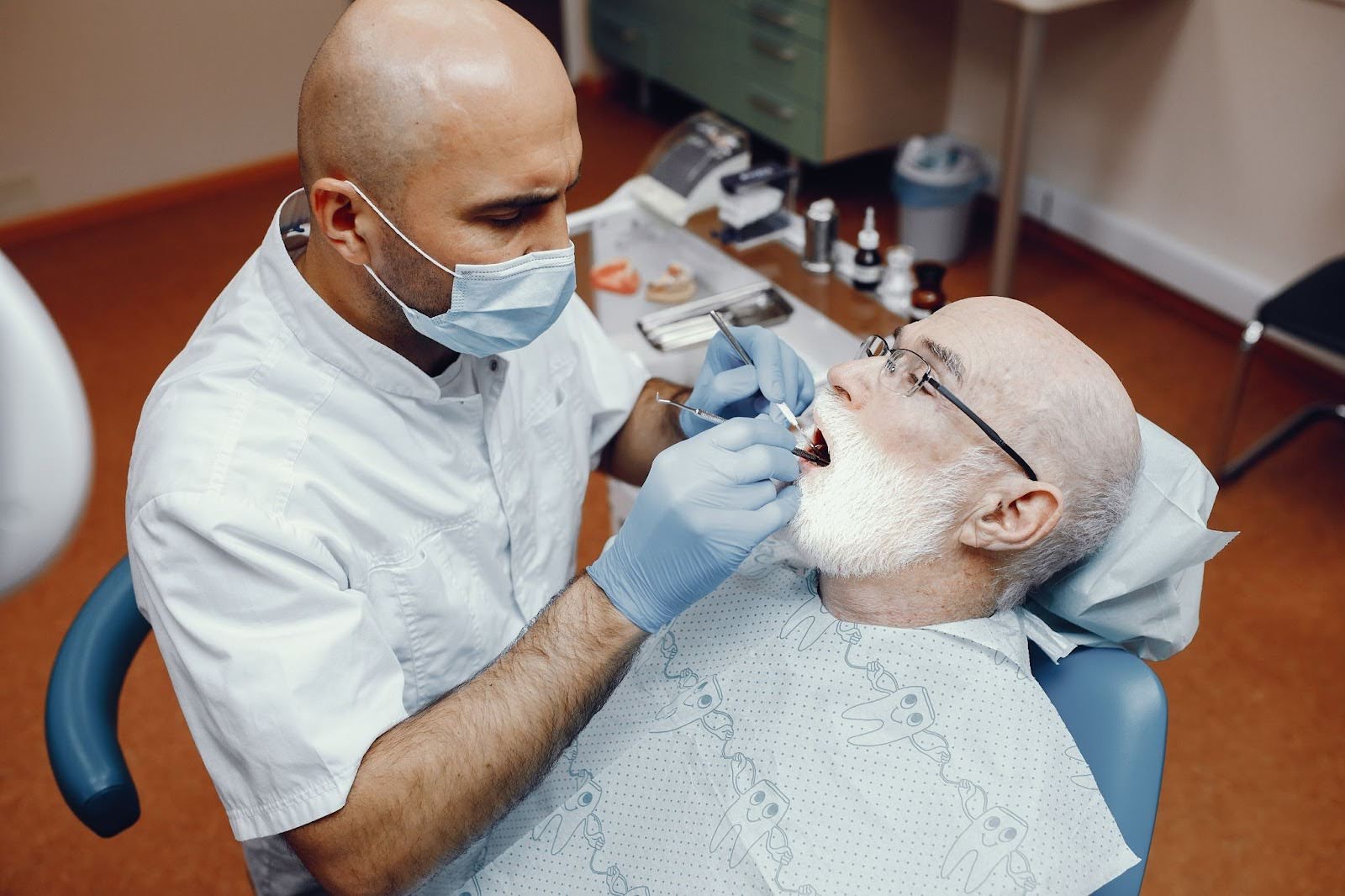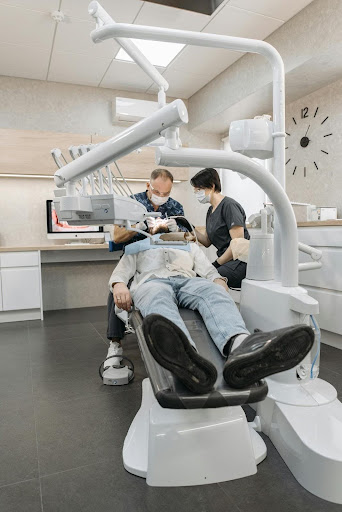The Hidden Stories Behind Everyday Dental Challenges
When Oral Health Speaks: Listening to the Subtle Signs of Your Smile
Dental health is much more than having pearly white teeth or a picture-perfect smile. It’s an ongoing conversation between your mouth and your body that reveals how stress, nutrition, habits, and self-care affect your overall well-being. Many oral health issues start quietly, often going unnoticed until discomfort appears. By learning to interpret these subtle signals, you can take proactive steps that protect both your smile and your confidence. After all, caring for your mouth means caring for your entire self.
When the Jaw Whispers Before It Hurts
Your jaw is more expressive than you might think. A faint click while chewing, tension after a long workday, or stiffness in the morning may be early indicators of temporomandibular joint (TMJ) problems. These small sensations, often brushed off as fatigue or stress, can develop into persistent pain or difficulty opening your mouth fully. Consulting a Dentist at this stage is essential early diagnosis helps prevent chronic discomfort and supports proper jaw alignment.
TMJ disorders don’t just affect your bite they can influence posture, sleep, and even mood. Recognizing early signs allows for simple adjustments that bring relief. Gentle jaw stretches, posture correction, and mindful relaxation during stressful moments can all help. Consulting a dentist ensures that you get personalized care before discomfort becomes chronic. In essence, your jaw may be quietly reminding you to slow down and take care of yourself.
Grinding Away in Silence
Teeth grinding, or bruxism, is one of those habits most people don’t notice until it leaves a mark literally. You might wake up with jaw soreness, dull headaches, or a sense that your teeth feel shorter. Often linked to anxiety, sleep disturbances, or even caffeine intake, bruxism can cause significant enamel damage over time.
The good news is that early action can prevent long-term issues. A custom night guard protects your teeth while you sleep, while simple relaxation exercises reduce jaw tension. Incorporating stress-relieving activities such as yoga, journaling, or mindful breathing can also make a big difference. By treating bruxism early, you take control of your comfort and preserve the strength of your natural teeth.
Gums: The Gentle Voice of Your Mouth
Healthy gums are the foundation of a strong smile, yet they’re often overlooked until they start bleeding or feel tender. Gum inflammation is one of the first signs of periodontal disease a condition that, if ignored, can lead to infection, bone loss, and even tooth mobility.
These symptoms may seem mild at first, but they’re your body’s way of signaling that something needs attention. Brushing twice daily with a soft-bristled brush, flossing carefully, and eating vitamin-rich foods can make a remarkable difference. Leafy greens, citrus fruits, and foods high in vitamin C support gum repair and strengthen connective tissues. Listening to your gums’ gentle warnings today can help you avoid serious oral health issues tomorrow.
Sensitivity: The Subtle Messenger
That sudden twinge you feel while enjoying an ice cream or sipping coffee isn’t something to ignore. Tooth sensitivity often indicates enamel erosion, receding gums, or tiny cracks in the teeth. It’s your mouth’s way of asking for gentler care.
Switching to toothpaste designed for sensitivity, avoiding overly hard brushing, and limiting acidic foods can offer relief. Most importantly, visiting your dentist helps identify the cause whether it’s early decay or enamel wear before it becomes a bigger problem. Paying attention to small discomforts prevents future pain and keeps your smile healthy for years to come.
Everyday Choices That Shape Oral Wellness
Your mouth mirrors your daily habits. What you eat, how much water you drink, and how well you manage stress all play vital roles in oral health. A diet rich in calcium, vitamin D, and antioxidants strengthens enamel and promotes healing. Drinking enough water helps neutralize acids and wash away food particles, while sufficient sleep supports natural repair processes in the body.
Even small, mindful habits matter, taking a few moments to unclench your jaw during stressful situations, reducing sugary snacks, and chewing slowly can prevent long-term wear and tear. Over time, these consistent efforts turn dental care from a chore into a form of self-respect and overall wellness.
Living Confidently Through Dental Challenges
Dental discomfort can affect more than your mouth; it can influence your confidence, your ability to eat comfortably, and even your social interactions. A dull ache in the jaw or a sensitive tooth might seem minor, but left untreated, it can affect your mood and daily routine.
Recognizing this connection empowers you to take charge early. By incorporating consistent care and seeking professional advice when needed, you can manage symptoms effectively. Trusted resources like Well Health Organic share natural remedies, lifestyle guidance, and holistic health insights that help you make informed decisions. Remember, your smile doesn’t define your worth but how you care for it reflects how deeply you value yourself.
Turning Problems Into Learning Moments
Every dental challenge carries a lesson. A TMJ flare-up might teach you to reduce stress; sensitivity could remind you to eat mindfully; bleeding gums may inspire better nutrition. When approached with awareness, these challenges turn into opportunities for personal growth.
Regular dental visits, paired with small lifestyle adjustments, help you stay ahead of problems. Over time, you begin to see oral care not just as hygiene, but as an essential act of self-care, one that builds discipline, mindfulness, and long-term health.
Seeing the Bigger Picture
Your mouth is connected to every system in your body. Inflammation, pain, or discomfort in your oral cavity can often reflect nutritional deficiencies, immune response issues, or chronic stress. Viewing dental care through a holistic lens allows you to understand that brushing and flossing are only part of the picture. Nutrition, hydration, sleep, and emotional well-being are equally vital in maintaining a healthy smile.
By nurturing this connection, you begin to treat oral health as part of your overall wellness journey not as a separate task but as a daily act of self-care that shapes your quality of life.
Empowering Your Smile, Empowering Yourself
Every smile has a story, one that speaks of confidence, health, and care. By listening to your body’s quiet messages, acting early, and staying consistent with your habits, you transform dental care from routine maintenance into a meaningful practice.
Whether it’s managing teeth grinding, easing jaw tension, or strengthening your gums, your choices define your journey toward comfort and confidence. For expert guidance, natural remedies, and everyday health tips, visit Well Health Organic a trusted source for holistic wellness insights that help you protect your smile and enhance your overall well-being.
Keep an eye for more latest news & updates on Wellhealth Organic!






